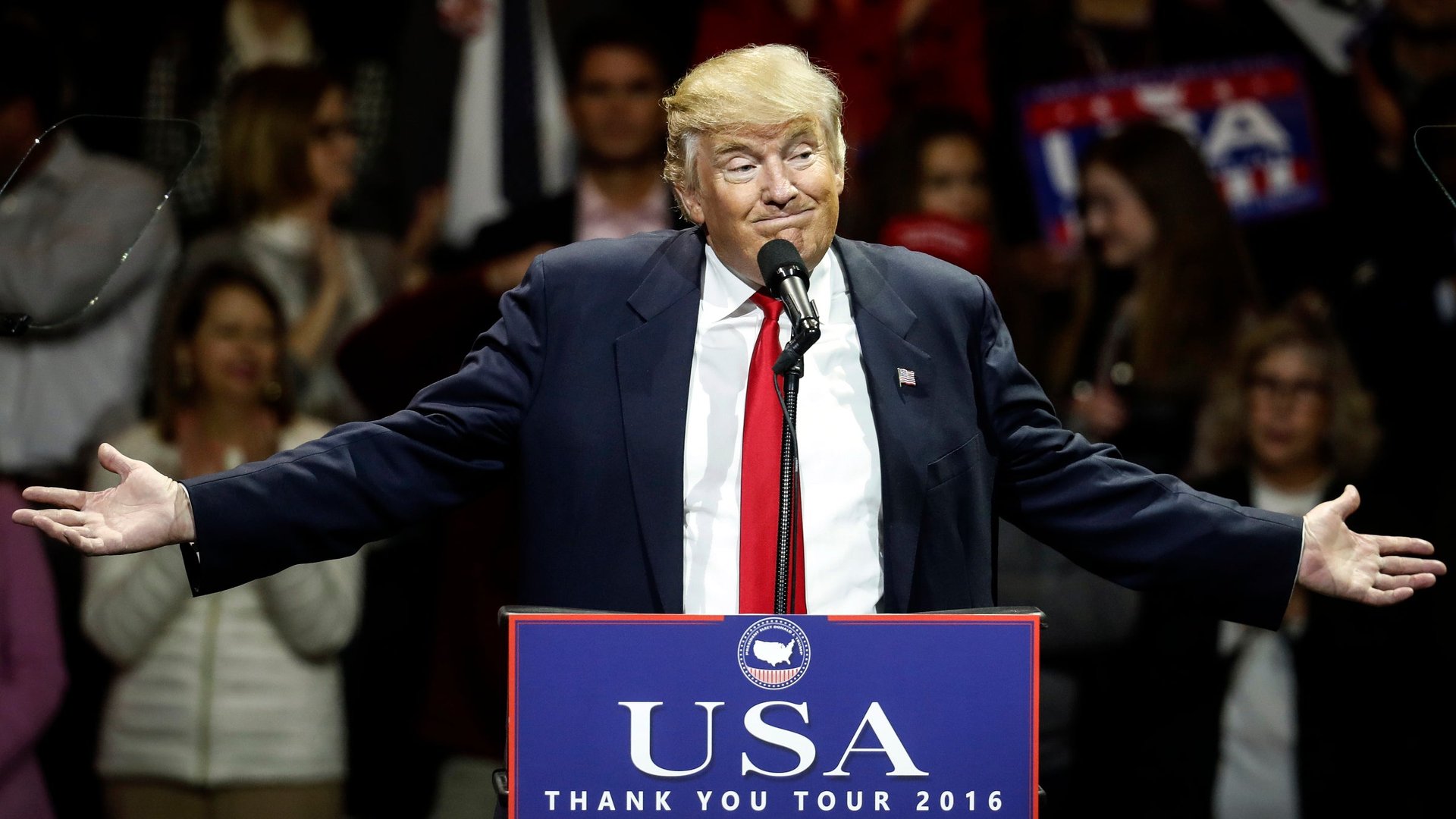On his first day as president, Donald Trump charged millions of new homeowners an extra $500 a year
Donald Trump entered the White House today rueing that “the wealth of our middle class has been ripped from their homes.” Then he raised mortgage costs for millions of new American homeowners.


Donald Trump entered the White House today rueing that “the wealth of our middle class has been ripped from their homes.” Then he raised mortgage costs for millions of new American homeowners.
Among Trump’s first actions as president was sending an emergency order (pdf) to US lenders and real estate agents that increased the amount of money first-time home buyers and low-income borrowers must pay to get a mortgage. The move reverses a decision by the Obama administration earlier this month to cut the cost of federal mortgage insurance by 0.25%, enough to save the average borrower $446 a year.
The cut was expected to help 250,000 new people afford home loans over the next three years. In 2015, the most recent year for which we have full data, the FHA insured 1.1 million new home loans.
These insurance premiums are part of the Federal Housing Administration’s efforts to protect the wide availability of the 30-year, fixed-rate home mortgage. Rising interest rates have made those mortgages more expensive for borrowers overall, and the rate cut under Obama was intended to help balance out those increases and preserve home affordability.
Republican lawmakers had criticized the decrease, arguing that lowering premiums would leave the government on the hook again if another wave of foreclosures sweeps across the US, leading to mortgage defaults.
In 2013, the government had to bail out the FHA to the tune of $1.5 billion, due to losses incurred with the collapse of the housing bubble. But since then the insurance fund has grown along with the housing market, and now exceeds the congressionally-mandated 2% reserve level.
The FHA only insures qualified loans for houses below a certain value, depending on the local market, and for borrowers with a total debt-to-income ratio, including their future home payments, of less than 43%. Today, the FHA insures 4.8 million single-family home loans.
At his confirmation hearing last week, incoming Housing and Urban Development secretary Ben Carson suggested government subsidies might not be necessary to ensure access to affordable homeownership. Today’s decision suggests that view is on its way to becoming government policy.
Carson isn’t the only member of the Trump team skeptical of government support for the housing market. Incoming Treasury secretary Steve Mnuchin, a former Goldman Sachs banker, spent Jan. 19 getting grilled about his time as CEO of OneWest bank, which foreclosed on tens of thousands of borrowers during the recession. Mnuchin faced harsh criticism, even from Republicans, of how his bank handled struggling homeowners. As Treasury secretary, Mnuchin said he would work to ensure that government-backed mortgage finance institutions are returned to private hands.
“The time for empty talk is over,” Trump said at his swearing-in on Friday. “Now arrives the hour of action.”
Take note of which action came first.
Correction: An earlier version of this story suggested the new rates apply to existing FHA loans. They only apply to newly issued loans.